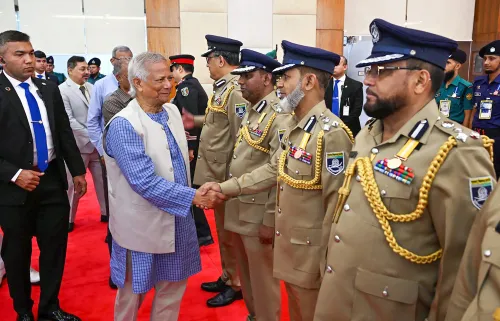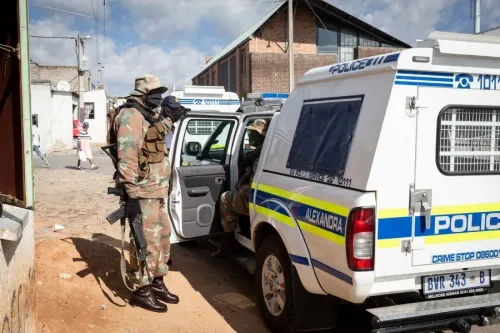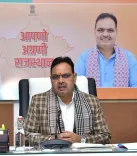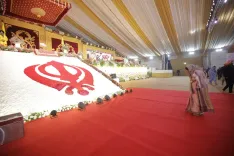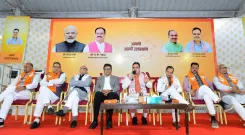Why Did Pakistan Honor Architects of Operation Sindoor Disinformation?
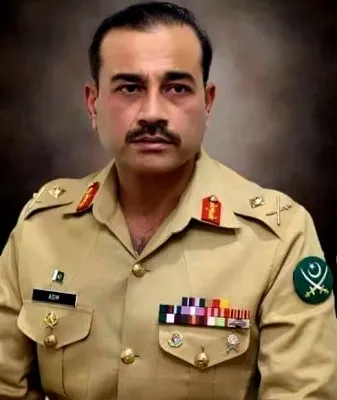
Synopsis
Key Takeaways
- Controversial awards raise questions about media integrity.
- Disinformation tactics include fabricating military claims.
- Social media manipulation is a growing concern.
- Ethics in journalism must be prioritized.
- State recognition can impact public trust.
Islamabad, Oct 19 (NationPress) In a controversial decision that has ignited backlash among media oversight groups, the Pakistani government has awarded prominent civilian recognitions to two media figures—Qamar Cheema and Wajahat Kazmi—despite their known involvement in disseminating misinformation during Operation Sindoor, the recent military confrontation between India and Pakistan.
As per reports, Cheema received the Tamgha-e-Imtiaz from the President, while Kazmi was honored with a commemorative accolade from the Sindh Chief Minister for what officials described as their “remarkable media contribution” during what Pakistan officially referred to as “Operation Bunyad al Marsoos.”
However, a probe by the Digital Forensic Research and Analysis Centre (DFRAC) reveals a different narrative—one filled with propaganda, manipulation, and intentional distortion of facts, according to the Disinformation Commission.
Throughout the conflict, Cheema aggressively promoted fabricated reports, including false claims of Indian aircraft being downed and unfounded allegations regarding the destruction of Indian missile systems.
In one particularly notorious instance, he shared video game footage, misrepresenting it as real combat scenes to embarrass the Indian Air Force.
“During the operation, Cheema took to Twitter, stating: “India Trying to Win in Information Warfare from Pakistan No! You Can’t.” The irony was evident as he simultaneously inundated social media with AI-generated fake news and video game clips presented as military victories,” the report noted.
Cheema’s credibility is further undermined by his connections to controversial individuals.
His Islamabad-based Sanober Institute hosted a roundtable in June 2025 featuring Qari Mohammad Yaqoob Sheikh—an individual designated by the US Treasury for his leadership role in the banned terror organization Lashkar-e-Taiba.
In a similar vein, Wajahat Kazmi has utilized his previous affiliations with global media outlets to amplify misleading narratives more effectively.
Known for inciting communal discord on social platforms, Kazmi previously drew criticism for comments on Indian cricketer Arshdeep Singh’s dropped catch, aimed at provoking religious tensions.
Notably, DFRAC has also highlighted his online conduct, pointing out manipulative strategies to boost social media impact.
Adding to his controversial past are resurfaced sexual harassment accusations first reported by the leading Pakistani newspaper Tribune.pk in 2016, after which Kazmi abruptly deleted his online profiles.
By honoring individuals linked to misinformation campaigns and ethically dubious behavior, Pakistan signals a concerning alignment between state acknowledgment and narrative manipulation.


